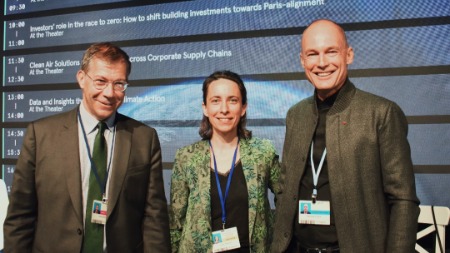Opinion
Negotiators and heads of state on a tight rope at COP26

THE TOPS AND FLOPS OF COP26. Whatever commitments decision-makers make at an international climate conference, they then must find approval of populations at the national level.
At a meeting like COP26, we are actually witnessing the conjunction of three worlds: those who want to change the system (but do not know how to go about it); those who resist change (seeking to maintain the status quo as long as possible); and finally that of decision-makers who must make commitments. Until now, these three worlds seemed to live in constant confrontation. Today, the evolution of the situation and solutions allow them to pull on the same rope.
After two days of conference in Glasgow, the debates are rich and we hope that significant results will be gained. But let us not forget that any commitment made during such an event will then have to be accepted at the national level, by parliaments and the population. Negotiators and heads of state are on a tightrope, and their mission is akin to a particularly delicate exercise.
An exciting and positive vision
When we see that the carbon tax, considered essential here, brought yellow vests down to the streets in France, and that even the Swiss population refused a referendum - the CO2 law, swept away last June - which directly targeted the reduction of greenhouse gas emissions, we realize that the commitments made by heads of state at an international conference do not mean much.
In this complex equation, the role of civil society becomes extremely important in encouraging and supporting the commitments that political representatives must make. Hence the need to put pressure from the streets through demonstrations, to use the democratic instruments that we are fortunate to have in Europe, such as petitions or popular initiatives, or even to challenge the media.
In this sense, environmental movements are essential to exert pressure, not only to get decision-makers to finally assume their responsibilities, but also for the population to support the measures that are being envisaged. However let me underline in conclusion that this militant action will only be meaningful if it gives ecology an exciting and positive vision. Any threatening image scares decision-makers, negotiators and citizens away. It is only on this condition that we will succeed in mobilizing the population, otherwise the cord risks breaking ...
This opinion piece was first published in La Tribune and the Swiss daily Le Temps.


